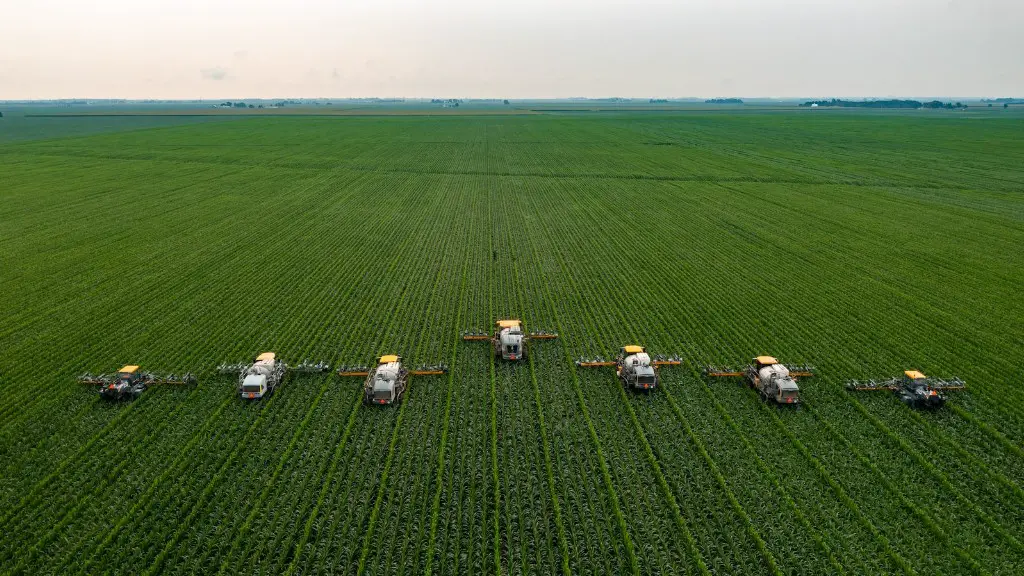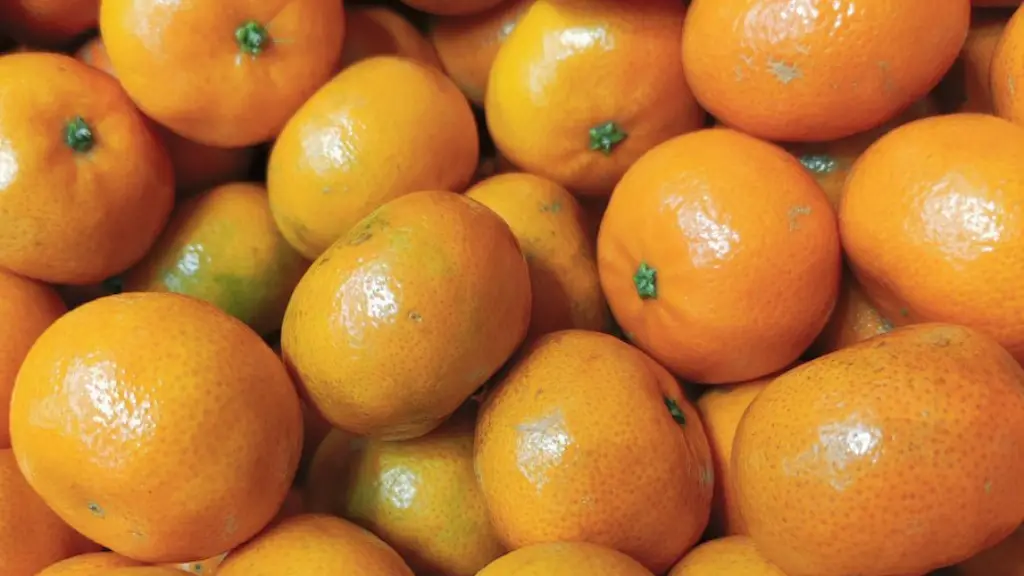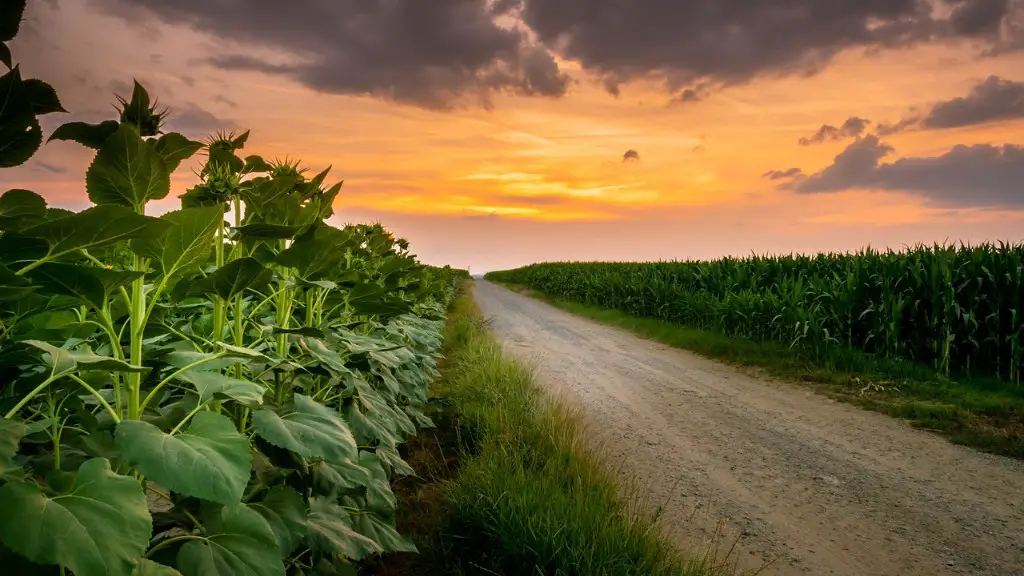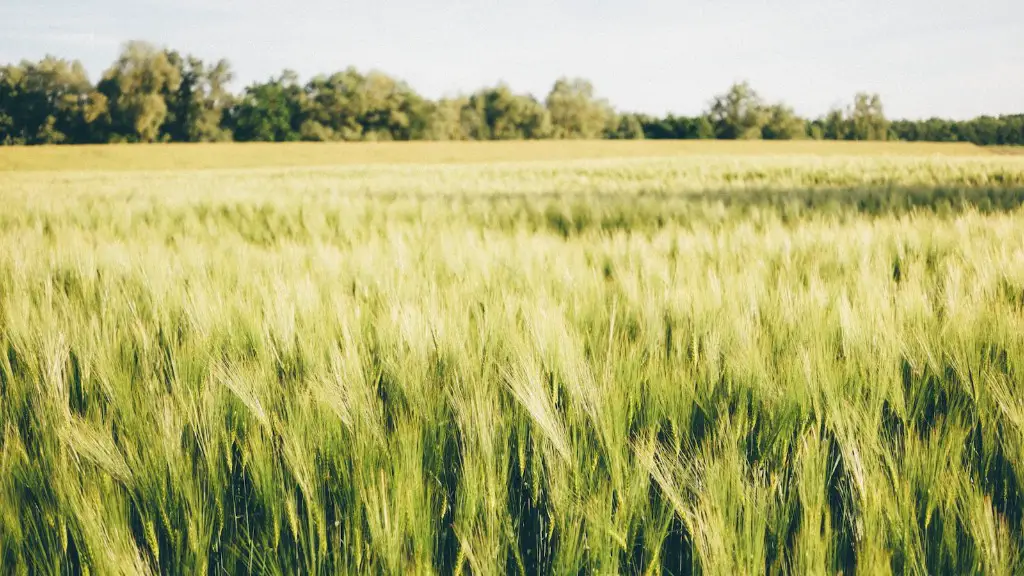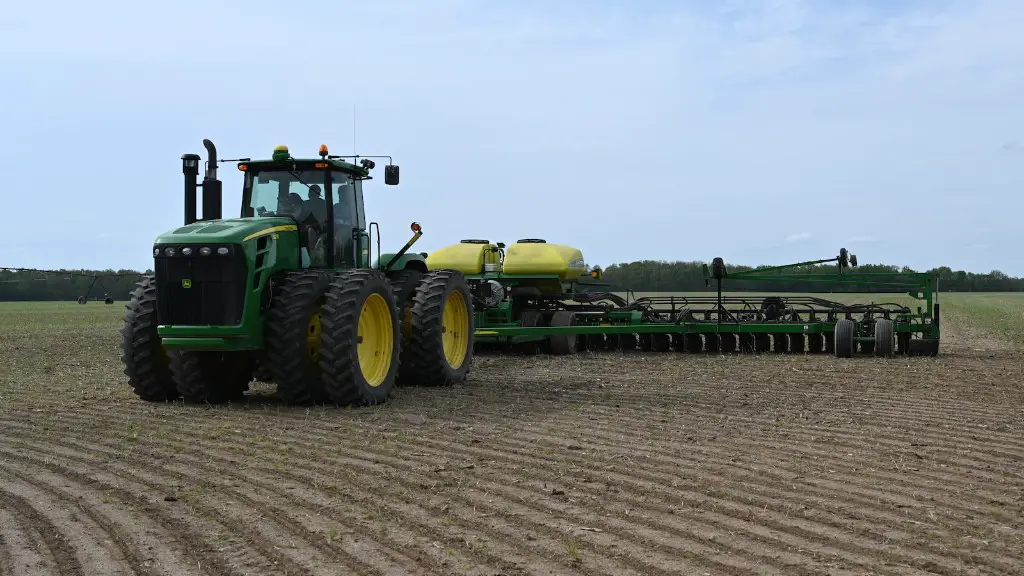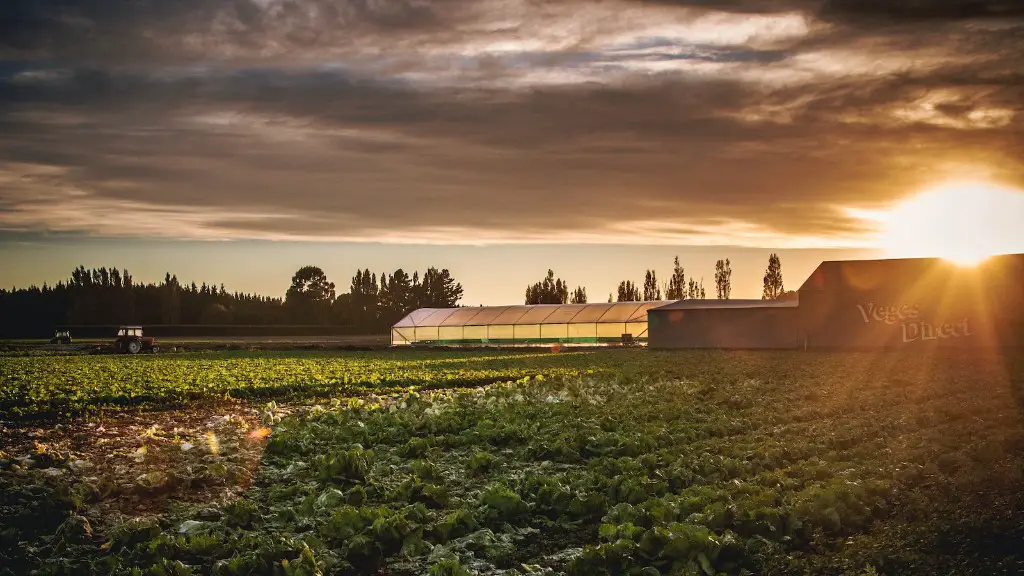Climate change is a major problem facing the world today. One of the major contributors to climate change is agriculture. Agriculture accounts for about 10% of global greenhouse gas emissions. Agriculture contributes to climate change in a number of ways. First, agriculture contributes to deforestation. Deforestation accounts for about 15% of global greenhouse gas emissions. Second, agriculture contributes to methane emissions. Methane is a powerful greenhouse gas that is about 25 times more potent than carbon dioxide. Third, agriculture contributes to nitrous oxide emissions. Nitrous oxide is a powerful greenhouse gas that is about 300 times more potent than carbon dioxide. Fourth, agriculture uses large amounts of water, which can lead to water shortages in areas where agriculture is prevalent.
There are a number of reasons why agriculture is bad for climate change. First, agriculture contributes to deforestation. Deforestation accounts for about 15% of global greenhouse gas emissions. Second, agriculture contributes to methane emissions. Methane is a powerful greenhouse gas that is about 25 times more potent than carbon dioxide. Third, agriculture contributes to nitrous oxide emissions. Nitrous oxide is a powerful greenhouse gas that is about 300 times more potent than carbon dioxide. Fourth, agriculture uses large amounts of water, which can lead to water shortages in areas where agriculture is prevalent
There are a number of reasons why agriculture is bad for climate change. First, agriculture is a major source of greenhouse gas emissions, accounting for approximately 10% of global emissions. Second, agriculture is a major contributor to deforestation, which is a major contributor to climate change. Third, agriculture is a major source of water pollution, which is also a major contributor to climate change.
How does agriculture affect climate change?
Actions that agricultural producers can take to reduce greenhouse gas emissions and store more carbon in the soil are often called carbon sequestration. Carbon sequestration describes long-term storage of carbon in plants, soil, and minerals. Carbon is stored in these reservoirs when atmospheric carbon dioxide (CO2) is removed from the atmosphere and used in the production of biomass (plant material) through photosynthesis. Once the biomass dies, some of the carbon is returned to the atmosphere, but a portion of it remains in the soil, where it can be stored for thousands of years.
Agriculture is the leading source of pollution in many countries. Pesticides, fertilizers and other toxic farm chemicals can poison fresh water, marine ecosystems, air and soil. They also can remain in the environment for generations.
What are 3 negative effects of agriculture on the environment
The large-scale, conventional farming system is not sustainable in the long term. It contributes to climate change, pollutes air and water, and depletes soil fertility. We need to move to a more sustainable system of agriculture that focuses on diversified crop production, using less harmful chemicals and more environmentally friendly practices.
Factory farming is one of the main contributors to greenhouse gas emissions, and thus to climate change. Factory farms release vast quantities of carbon dioxide and methane, which are two of the most potent greenhouse gases. These emissions contribute to the warming of the planet, which in turn leads to more extreme weather events and other impacts on the environment.
Factory farming is a major driver of deforestation, as well. Trees are cut down to make way for factory farms, and the clearing of land for farming emits even more greenhouse gases. Factory farming also uses large amounts of water and energy, further exacerbating the problem.
It’s clear that factory farming is intensifying climate change, and it’s imperative that we take action to address this issue. We need to move away from factory farming and towards more sustainable and environmentally friendly methods of food production.
How does agriculture cause global warming?
On the other hand, agriculture is a victim of climate change. The increased frequency and intensity of extreme weather events, such as floods and droughts, are having a devastating impact on crops and livestock. In addition, the spread of pests and diseases is also being exacerbated by climate change.
Farming allowed for the domestication of plants and animals, which led to the development of civilizations. However, this also led to the development of deep class divisions. Hunter-gatherers have little or no stored food, and no concentrated food sources, like an orchard or a herd of cows: they live off the wild plants and animals they obtain each day. This way of life is in stark contrast to the settled, agricultural lifestyle of those who live in cities and have access to a wide variety of food. The division between these two groups is often seen as the source of many social problems.
Are there any negative effects of agriculture?
The government has implemented financial assistance programs that enable farmers to reduce their emissions of greenhouse gases (GHGs). Agriculture contributes to GHG emissions through enteric fermentation and soil manure management, among other things. These financial assistance programs will help farmers to reduce their emissions of GHGs, and help to protect the environment.
Agriculture has a number of negative impacts on the environment. Foremost among these is the loss of soil fertility, which can lead to eutrophication of water bodies, deforestation and climate change. Pesticide pollution is also a major problem, causing health problems for both humans and animals.
What are at least 3 cons to our agricultural practices
The risks and negative impacts of factory farming are significant. Factory farming increases the risk of animal cruelty, negatively impacts small business agriculture, creates environmental concerns, contributes to health problems, and can produce low-quality food. These risks and negative impacts must be considered when weighing the pros and cons of factory farming.
Climate change, deforestation, landlessness, lack of integration, land fragmentation, and urbanization are all major challenges that the world is facing today. These problems are only getting worse as time goes on, and it is up to us to try to find solutions. We need to be proactive and work together to find ways to combat these issues, before it’s too late.
What are the 3 worst causes of climate change?
Fossil fuels are responsible for a large portion of global emissions, and their use is a major cause of climate change. Manufacturing goods, cutting down forests, using transportation, and powering buildings all contribute to emissions, as well. Consuming too much in general – whether it be food, resources, or energy – can also cause climate change.
Fossil fuels are the main cause of climate change, and the evidence is clear. Burning fossil fuels releases carbon dioxide into the air, causing the planet to heat up. We need to switch to renewable energy sources like solar and wind power to help slow down climate change.
How much does farming add to global warming
The effects of land conversion and industrial farming practices on climate change are significant. Synthetic fertilizers, diesel-powered farm machinery, and methane-producing livestock all contribute to climate change. Farming accounts for 10% of all climate-affecting emissions from the United States each year. These practices need to be changed in order to mitigate the effects of climate change.
Carbon dioxide is one of the greenhouse gases that contributes to climate change. Farming activities like tilling, planting, and applying pesticides and fertilizers release carbon dioxide into the atmosphere. The more times farm equipment passes across the field, the more carbon dioxide is emitted. Reducing the number of passes can help cut down on emissions from farming.
Is agriculture the worst mistake in human history?
Archaeologists studying the rise of farming have discovered a crucial stage at which we made the worst mistake in human history: we chose to try to increase food production instead of limiting population, and ended up with starvation, warfare, and tyranny.
In this article, Jared Diamond argues that the adoption of agriculture was actually the worst mistake in the history of the human race. He challenges the received wisdom that this was a progressive step, and instead argues that it led to a decline in human health and wellbeing. He cites evidence from the archaeological record to support his claims, and argues that the move to agriculture was a major factor in the decline of the human race.
What are pros and cons of agriculture
Agriculture has been a key part of human societies for millennia, and it has had both positive and negative effects. The obvious pros are that agriculture provides a ready source of food, and it is generally safer than hunting and gathering. However, there can be conflicts over access to resources, and weather can damage crops.
Specialization allowed humans to become experts through the development of artists, leaders, scribes. The domestication of wheat, corn, and rice was a key development in human history. Agriculture allowed for the rise of civilizations, and it has had a profound impact on the world.
The livestock sector is one of the most significant sources of greenhouse gas emissions. It is responsible for about 11 percent of US emissions, and of that, 36 percent comes from the raising, feeding, and management of livestock. The sector is also a major source of other environmental problems, such as water pollution and land degradation.
Final Words
Agriculture is a leading contributor to greenhouse gas emissions, accounting for approximately 10% of global emissions. Agriculture contributes to climate change through activities such as deforestation, livestock production, and the use of fossil fuels. These activities release greenhouse gases, including carbon dioxide and methane, into the atmosphere, which trap heat and contribute to global warming. Agriculture also contributes to climate change through land-use changes, such as the conversion of forests to pastureland or farmland. These land-use changes can release large amounts of carbon dioxide into the atmosphere and alter local climates.
Agriculture is bad for climate change because it is one of the main sources of greenhouse gas emissions. Agriculture accounts for about 10% of global greenhouse gas emissions, and this is expected to increase as the population continues to grow. Agriculture is also a major contributor to deforestation, which is a major contributor to climate change.
